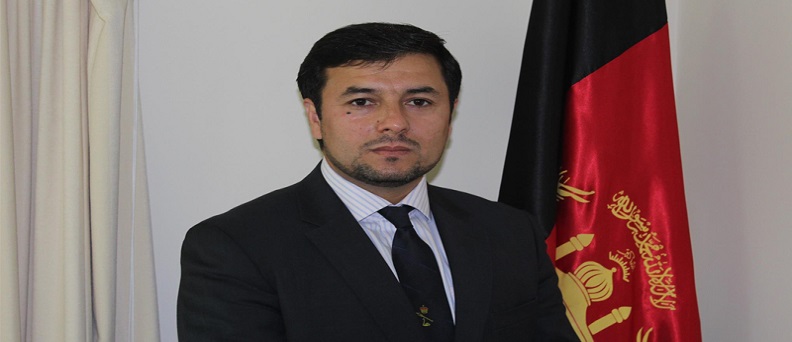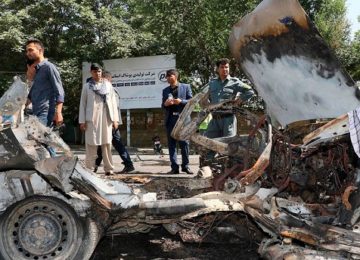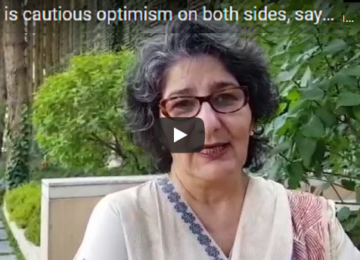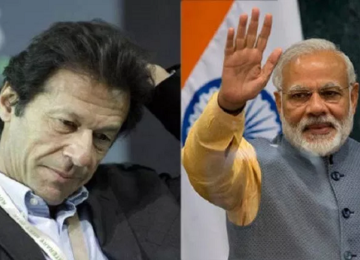Afghanistan wants an end to the blame game going on with Pakistan, Afghan Deputy Foreign Minister Nasir Ahmad Andisha said on Saturday.
Speaking as chief guest at the ground-breaking ceremony of new Afghan embassy complex in Islamabad, Andisha, however, reiterated that Afghan Taliban and other terrorist groups had sanctuaries in Pakistan.
“The blame-game should end, which is a key to the confidence building measures. However, we know that the sanctuaries of the Taliban and other groups are here. The name of Quetta Shura is well-known, which means it is in Quetta,” he said. He said that Afghanistan would have its biggest embassy in Islamabad.
“We believe that the people of Pakistan and Afghanistan are suffering due to terrorism. It also tarnishes the image of Pakistan and Afghanistan in the world so we should make efforts to counter terrorism,” he said.
Asked about the improvement in bilateral ties following the recent exchange of visits between Pakistan and Afghanistan, he said that both sides should take steps to improve relations. “There have been ups and downs in Pak-Afghan relations. But the people and Afghan government want good relations with Pakistan. There are expectations that the relations might improve, but currently there are no such indications that I can confirm. Whether the relations are moving ahead or not, both sides are taking steps to improve the relations. This is in the interest of the two countries and the people,” Andisha said.
To a question about Pakistani officials’ statement that the chief of the Pakistani Taliban Mullah Fazalullah and the Pakistani Taliban operated from Afghanistan’s Kunar, Nuristan and Nangarhar provinces, he said such statements were part of the blame-game.
“I call this a blame-game. Those Taliban are not in the Afghan government controlled areas. They are not in our cities. There is no Kabul Shura, Mazar-e-Sharif Shura, or Jalalabad Shura,” he claimed.
“The Afghan forces and the foreign forces in Afghanistan are taking action against all groups, whether they are the Pakistani Taliban, Afghan Taliban, Haqqani network or al Qaeda. All should be eliminated whether they are on the other side of the Durand Line or on this side. But this is untrue that we keep the Taliban there. The Taliban were here in Pakistan in the past and are still here,” he said.
Asked about China’s role and the fate of the Quadrilateral Coordination Group (QCG), he said China had good relations with both Pakistan and Afghanistan. “Both should take advantage of China’s role in the region and also in improvement of bilateral relations,” he said.
Andisha called for the implementation of the road-map agreed upon by the QCG.
“We support the Chinese diplomatic efforts. We believe that the war can be ended through diplomatic and political means,” he said.
He said that Kabul had hoped Pakistan would bring the Taliban to the negotiation table but “unfortunately Pakistan has not responded positively to Afghanistan’s expectations”. “Kabul still hopes Pakistan will play such a role. Afghanistan has never closed its doors to peace talks with the Taliban,” he said.
The Afghan deputy foreign minister later called on Foreign Secretary Tehmina Janjua and discussed strengthening cooperation between the countries in diverse fields as well as in the efforts for lasting peace and stability in Afghanistan, the Foreign Office said.
The foreign secretary underlined the need for enhancing economic cooperation, trade, transit and connectivity for the mutual benefit of the people of the two countries, a statement issued from the Foreign Office said.
In this regard, she emphasized the need of expediting infrastructure and energy connectivity projects between Pakistan and Afghanistan.
This article originally appeared in Daily Times on August 20, 2017. Original link.
Disclaimer: Views expressed in the article are not necessarily supported by Afghan Studies Center.








